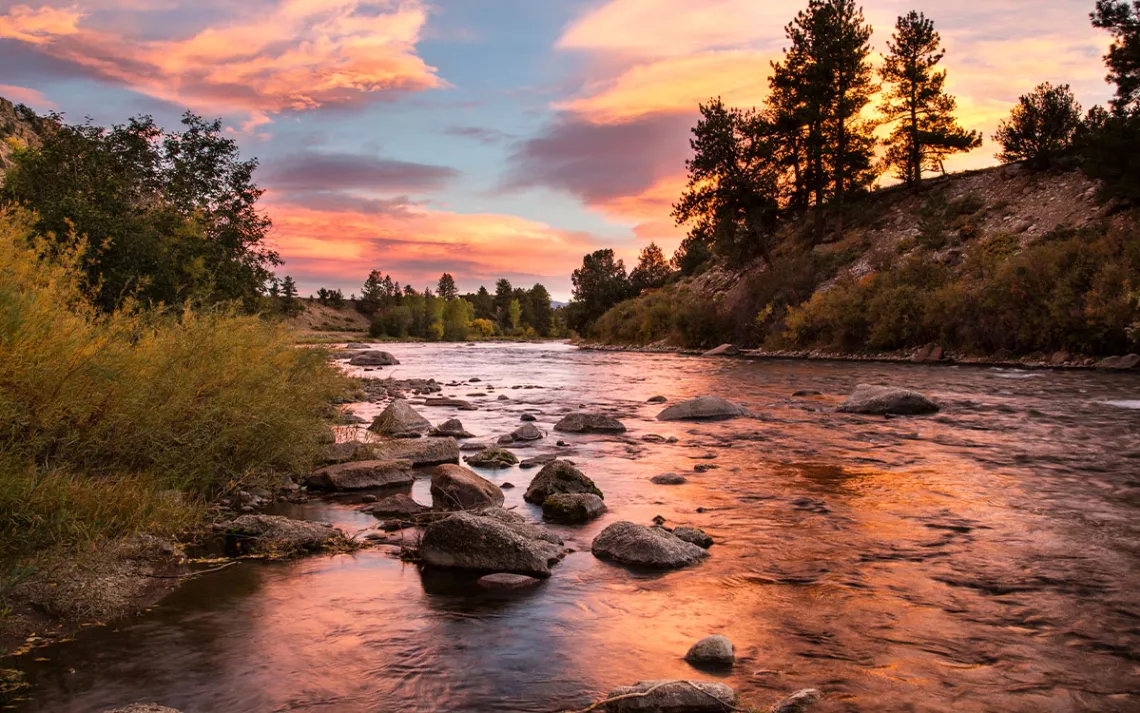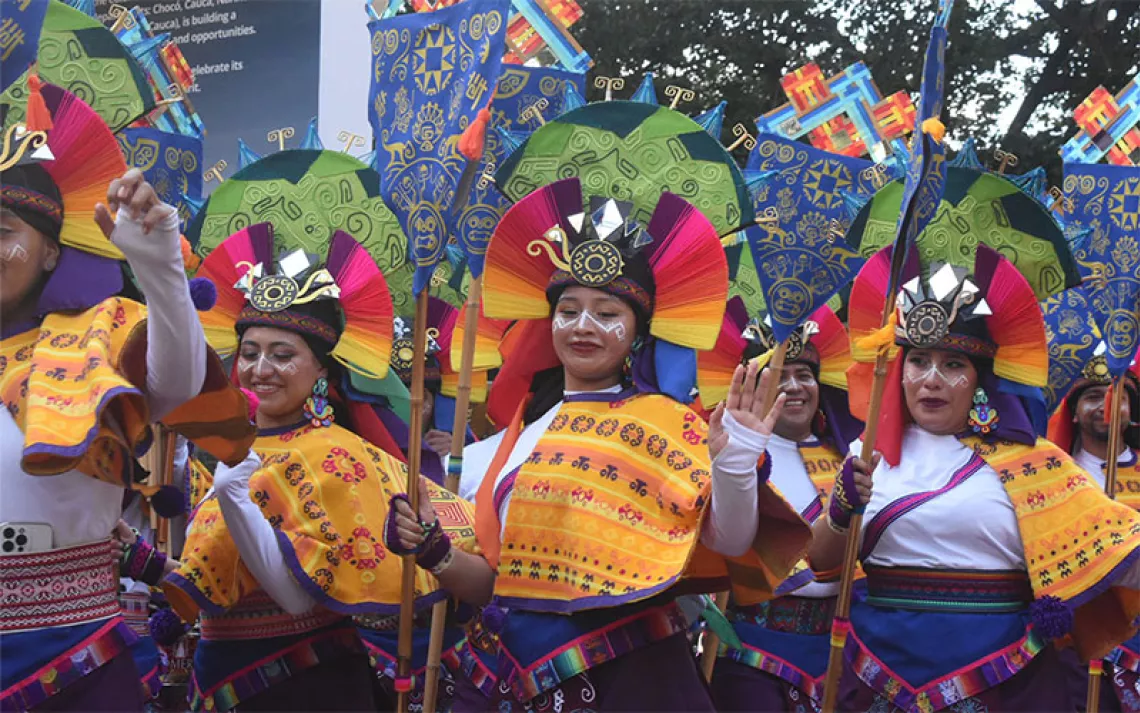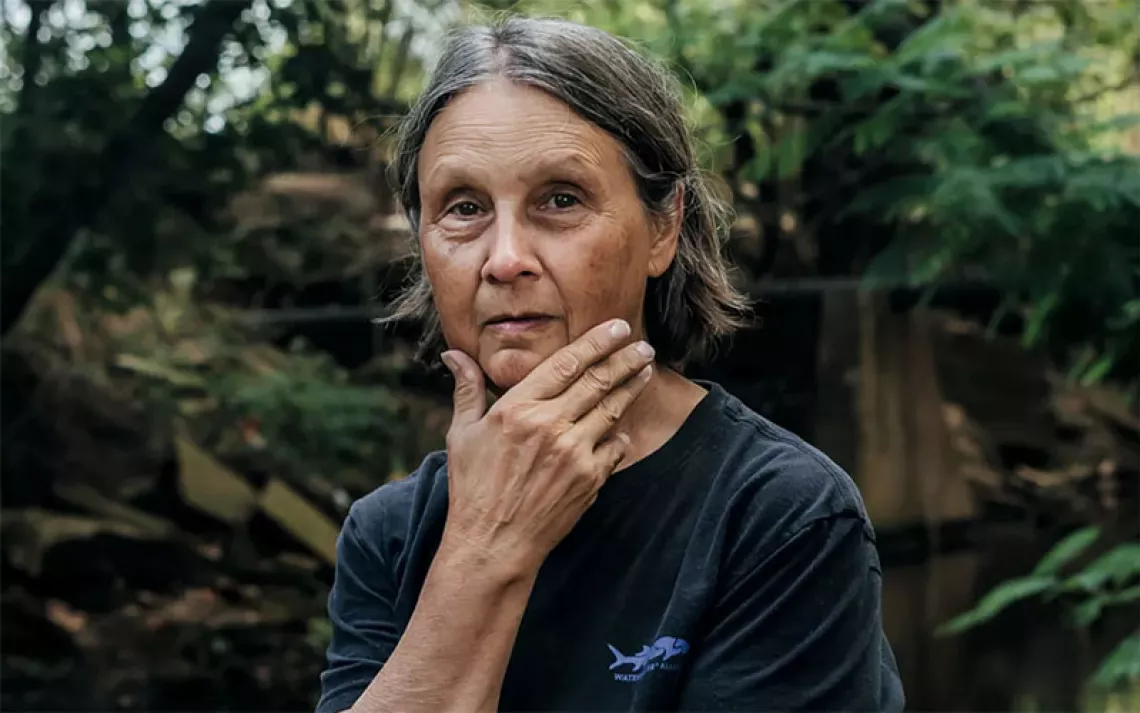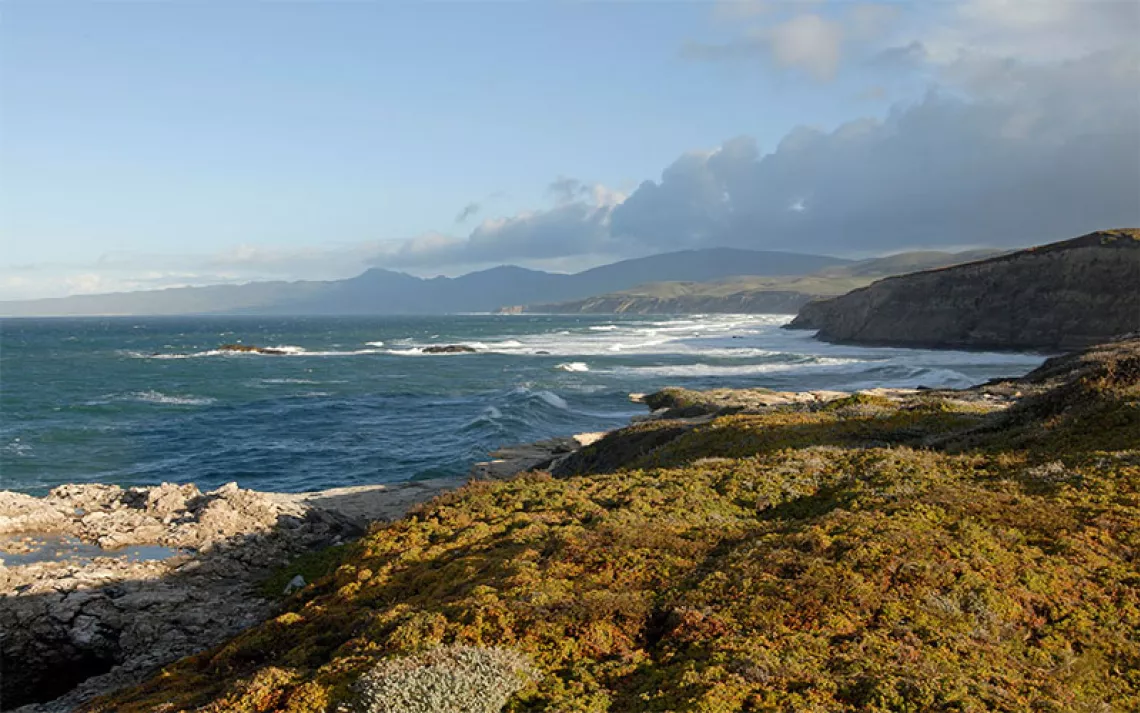These Women Are Leading the Effort to Protect Sacred Water
A new documentary, "Drowned Land," explores the Choctaw-led effort to put tribal heritage above profit

A section of the Arkansas River in Colorado. | Photo by Bob Wick/BLM
The kwek, the women of my tribe, speak for the water. The Creator entrusted us with this sacred duty, a task we take so seriously that not only do we Potawatomi have multiple songs about water, but we also closely guard some, not writing them down or recording them. In the 21st century, eight generations after my people were forced on the Trail of Death from Indiana, scattering us through removal, this can mean we sometimes only learn these songs by having elders repeat them for us again and again on the phone. A modernized solution for a colonized problem.
But how do we speak for the water if we are silenced? I have been wrestling with how to carry on the legacy of my kwek ancestors while treading in fights for the water in my home state of Oklahoma. At every turn, state leaders and corporations have assaulted water—from the Arkansas River, as it winds through the prairie and crosses the northern state line, filled with agricultural runoff, south to the Kiamichi River, where foreign developers with deceitful names like the Southwest Oklahoma Power Corporation want to destroy the entire valley and river for profit and greed. I am surrounded by not only a legacy of colonization but also very alive and active waves of colonizer tactics that seek to drown out voices like mine, voices seeking to protect our home, our people, our land, and our water.
Cherokee citizen Charlotte Robins recently took me to the final stop for most Choctaw on the Trail of Tears, the forced removal of the Cherokee and Choctaw from Southern states like Georgia and Mississippi. It’s a quiet, forested spot so unexpectedly plain and calm, hiding its deep and painful history. She choked on her words as she described her fight for the Kiamichi as though she had been screaming as loud as she could for years with no one hearing a sound. Her sad silence was not unlike the very spot we stood on, deceptively still, making me wonder how many of Robins’s ancestors’ tears watered this land and how many more are yet to come.
Robins and other residents of the Kiamichi River area have had their battle documented by Choctaw citizen and Emmy Award winner Colleen Thursten in the upcoming film Drowned Land. I had done my best to emotionally prepare for the recent private screening, aptly held at the Choctaw-owned cinema in Durant, Oklahoma. As I settled into the seat, I anchored myself to see on the silver screen Native women like Robins openly bare the wounds from generations of broken treaties and genocide, from current battles against outsiders seeking to extract and take.
What I did not expect to be the most agonizing scene involved the silencing of a non-Native woman. While trying to testify at a hearing for a proposed project by yet another developer, Lauren Haygood was immediately cut off, her expertise called into question because of her age and youthful appearance. The white men questioning her made no attempt to target her actual educational and professional background. She was simply attacked for being a young woman speaking for the water.
Haygood is no stranger to these battles. In Tulsa, she is a quiet force for change, equipping communities with water testing kits and empowering them to document the Arkansas River’s pollutants. Her work is a reminder of what happens when profits are prioritized over water—lessons the Arkansas River painfully bears, and warnings the Kiamichi River’s defenders cannot afford to ignore.
Where Haygood is the calm, steady voice of scientific research—methodically explaining the pollutants and damages plaguing our water—Barbara VanHanken is the fiery, impassioned voice, demanding that people understand why Haygood’s findings matter. VanHanken’s energy is infectious, and her fierce determination to protect our environment has often been my anchor during moments of doubt. As the former Sierra Club Oklahoma chair, she knows this work is not easy and never linear.
I remember calling her at the beginning of Covid, my first full year as chapter chair, overwhelmed by the decision to close the office and move everything into storage. Her response was characteristically blunt: “You think this is the first time we’ve closed the chapter office?” In other words, focus on the real battles. That is VanHanken—cutting through the noise to remind me why we fight and who we fight for.
In October, I joined Ben Jealous, the Sierra Club’s executive director, on a tour of Tulsa led by VanHanken and her fellow river activists, Helen King and Ann Marie Beer. We stood on the wounds inflicted to the land by greed. Canadian crude oil, piped in, refined, and then piped out, usually to other states, with its pollution staying right in the city with one of the largest urban concentrations of tribal citizens. This is the same city that’s home to Greenwood, the site of the Tulsa Race Massacre, responsible for the theft and destruction of Black wealth at a level unfathomable.
On one of the stops, Beer, a first-generation American of Colombian and Mexican descent, showed us the low-income community that is the basis for a civil rights violation claim she recently filed. The area’s apartments and duplexes were beige and a little drab, but the dozen or so children playing around the neighborhood made me wonder why we were taking time to stop here when this looked no worse than my neighborhood. Then, I opened my car door and almost puked. The air, thick and foul smelling, nearly triggered a fight or flight response in my body as I struggled not to choke.
Directly across the street, mere yards from where these children were playing, was a major refinery. The nauseating odor gagging me was the air this community breathes every day. I wondered if these children ever played in a place where they could truly breathe.
HF Sinclair and the other businesses that have poisoned the air have destroyed the Arkansas River. In VanHanken’s walks along it, she regularly sees oil slicks and methane pockets bubbling to the surface. The City of Tulsa will tell you not to swim in it while opening a multimillion-dollar riverfront park that, by design, encourages and tempts, with paths leading down to the water where, instead of barriers, residents find life jackets available. I lost track of how many children, especially Native children, I saw playing in that water as I sat at the last stop of our tour.
There is a fire blazing as I write this. Oil storage tanks near the river are burning. It makes me wonder if those children’s air is even worse today, and if it is, will they try to seek refuge by playing in the river? Where can they go and be safe?
One of the final scenes in Drowned Land shows Thursten’s young son helping her in the garden. Like the seeds he plants, he too will depend on the water as he grows, their health and well-being intertwined. I realize this is why the Creator gave the task of speaking for the water to the kwek. Who better to protect the entity that will nourish the future of children than the mothers of the present?
I believe this is what the Creator envisioned: women from all walks of life standing together, protecting the water for future generations. As I picture us gathered—Indigenous and non-Indigenous, scientists and activists—I no longer fear being silenced. Instead, I hear our voices rising, stronger together, calling on others to join us in this sacred fight for the water.
 The Magazine of The Sierra Club
The Magazine of The Sierra Club



